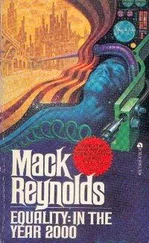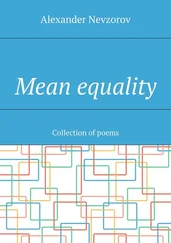“While the internal organizations of different industries, mechanical and agricultural, differ according to their peculiar conditions, they agree in a general division of their workers into first, second, and third grades, according to ability, and these grades are in many cases subdivided into first and second classes. According to his standing as an apprentice a young man is assigned his place as a first, second, or third grade worker. Of course only men of unusual ability pass directly from apprenticeship into the first grade of the workers. The most fall into the lower grades, working up as they grow more experienced, at the periodical regradings. These regradings take place in each industry at intervals corresponding with the length of the apprenticeship to that industry, so that merit never need wait long to rise, nor can any rest on past achievements unless they would drop into a lower rank. One of the notable advantages of a high grading is the privilege it gives the worker in electing which of the various branches or processes of his industry he will follow as his specialty. Of course it is not intended that any of these processes shall be disproportionately arduous, but there is often much difference between them, and the privilege of election is accordingly highly prized. So far as possible, indeed, the preferences even of the poorest workmen are considered in assigning them their line of work, because not only their happiness but their usefulness is thus enhanced. While, however, the wish of the lower grade man is consulted so far as the exigencies of the service permit, he is considered only after the upper grade men have been provided for, and often he has to put up with second or third choice, or even with an arbitrary assignment when help is needed. This privilege of election attends every regrading, and when a man loses his grade he also risks having to exchange the sort of work he likes for some other less to his taste. The results of each regrading, giving the standing of every man in his industry, are gazetted in the public prints, and those who have won promotion since the last regrading receive the nation’s thanks and are publicly invested with the badge of their new rank.”
“What may this badge be?” I asked.
“Every industry has its emblematic device,” replied Dr. Leete, “and this, in the shape of a metallic badge so small that you might not see it unless you knew where to look, is all the insignia which the men of the army wear, except where public convenience demands a distinctive uniform. This badge is the same in form for all grades of industry, but while the badge of the third grade is iron, that of the second grade is silver, and that of the first is gilt.
“Apart from the grand incentive to endeavor afforded by the fact that the high places in the nation are open only to the highest class men, and that rank in the army constitutes the only mode of social distinction for the vast majority who are not aspirants in art, literature, and the professions, various incitements of a minor, but perhaps equally effective, sort are provided in the form of special privileges and immunities in the way of discipline, which the superior class men enjoy. These, while intended to be as little as possible invidious to the less successful, have the effect of keeping constantly before every man’s mind the great desirability of attaining the grade next above his own.
“It is obviously important that not only the good but also the indifferent and poor workmen should be able to cherish the ambition of rising. Indeed, the number of the latter being so much greater, it is even more essential that the ranking system should not operate to discourage them than that it should stimulate the others. It is to this end that the grades are divided into classes. The grades as well as the classes being made numerically equal at each regrading, there is not at any time, counting out the officers and the unclassified and apprentice grades, over one-ninth of the industrial army in the lowest class, and most of this number are recent apprentices, all of whom expect to rise. Those who remain during the entire term of service in the lowest class are but a trifling fraction of the industrial army, and likely to be as deficient in sensibility to their position as in ability to better it.
“It is not even necessary that a worker should win promotion to a higher grade to have at least a taste of glory. While promotion requires a general excellence of record as a worker, honorable mention and various sorts of prizes are awarded for excellence less than sufficient for promotion, and also for special feats and single performances in the various industries. There are many minor distinctions of standing, not only within the grades but within the classes, each of which acts as a spur to the efforts of a group. It is intended that no form of merit shall wholly fail of recognition.
“As for actual neglect of work positively bad work, or other overt remissness on the part of men incapable of generous motives, the discipline of the industrial army is far too strict to allow anything whatever of the sort. A man able to do duty, and persistently refusing, is sentenced to solitary imprisonment on bread and water till he consents.
“The lowest grade of the officers of the industrial army, that of assistant foremen or lieutenants, is appointed out of men who have held their place for two years in the first class of the first grade. Where this leaves too large a range of choice, only the first group of this class are eligible. No one thus comes to the point of commanding men until he is about thirty years old. After a man becomes an officer, his rating of course no longer depends on the efficiency of his own work, but on that of his men. The foremen are appointed from among the assistant foremen, by the same exercise of discretion limited to a small eligible class. In the appointments to the still higher grades another principle is introduced, which it would take too much time to explain now.
“Of course such a system of grading as I have described would have been impracticable applied to the small industrial concerns of your day, in some of which there were hardly enough employees to have left one apiece for the classes. You must remember that, under the national organization of labor, all industries are carried on by great bodies of men, many of your farms or shops being combined as one. It is also owing solely to the vast scale on which each industry is organized, with co-ordinate establishments in every part of the country, that we are able by exchanges and transfers to fit every man so nearly with the sort of work he can do best.
“And now, Mr. West, I will leave it to you, on the bare outline of its features which I have given, if those who need special incentives to do their best are likely to lack them under our system. Does it not seem to you that men who found themselves obliged, whether they wished or not, to work, would under such a system be strongly impelled to do their best?”
I replied that it seemed to me the incentives offered were, if any objection were to be made, too strong; that the pace set for the young men was too hot; and such, indeed, I would add with deference, still remains my opinion, now that by longer residence among you I become better acquainted with the whole subject.
Dr. Leete, however, desired me to reflect, and I am ready to say that it is perhaps a sufficient reply to my objection, that the worker’s livelihood is in no way dependent on his ranking, and anxiety for that never embitters his disappointments; that the working hours are short, the vacations regular, and that all emulation ceases at forty-five, with the attainment of middle life.
“There are two or three other points I ought to refer to,” he added, “to prevent your getting mistaken impressions. In the first place, you must understand that this system of preferment given the more efficient workers over the less so, in no way contravenes the fundamental idea of our social system, that all who do their best are equally deserving, whether that best be great or small. I have shown that the system is arranged to encourage the weaker as well as the stronger with the hope of rising, while the fact that the stronger are selected for the leaders is in no way a reflection upon the weaker, but in the interest of the common weal.
Читать дальше










